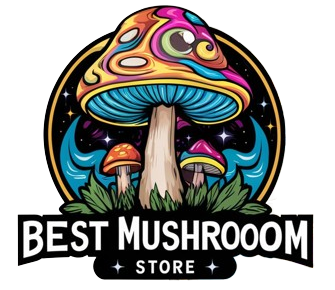Some people use magic mushrooms to self-medicate or treat conditions like anxiety and depression. But are shrooms addictive? What is the risk of developing addiction? Here’s what you need to know.
Addiction is a problem that plagues many people across the globe. While there are many types of addiction, one of the most common is addiction to drugs or alcohol. Drugs and alcohol can offer a temporary escape from reality, numbing the user to their problems. However, this escape is only temporary, and ultimately leads to more problems down the road. In addition to the physical and mental health problems associated with addiction, it can also lead to financial ruin and damaged relationships. But are shrooms addictive? What are shrooms, and what are they used for?
What Are Psilocybin Mushrooms?
Psilocybin mushrooms, also known as “shrooms,” are a type of fungi that contain the psychoactive compound psilocybin. Psilocybin is a naturally occurring psychedelic substance that has been used for centuries by indigenous peoples in Mexico and Central America for religious and spiritual purposes. When consumed, psilocybin produces powerful psychedelic effects, including altered states of consciousness, visual and auditory hallucinations, and an increased sense of well-being and connection to the natural world.
What Are Common Side Effects of Shrooms?
Side effects of magic mushrooms include nausea, vomiting, diarrhea, and abdominal cramps. These typically last around 6-8 hours after ingestion. Some people also experience headaches, dizziness, and changes in blood pressure. There is also a risk of psychotic episodes with prolonged use or high doses. Other potential side effects of magic mushrooms include: anxiety, paranoia, hallucinations, psychotic episodes, increased heart rate, high blood pressure, muscle weakness and tremors. Magic mushrooms can also interact with other drugs and medications. But are shrooms addictive like other substances found in drugs?
Can Psilocybin Have Medicinal Benefits?
Psilocybin is a prodrug to psilocin which acts on serotonin receptors in the brain. When psilocybin is digested, it produces psilocin and causes changes in perception, mood, and cognitive processes. These changes are similar to those caused by other serotonergic psychedelics such as LSD and DMT, but psilocybin found in mushrooms occur naturally.
Magic Shrooms and Addiction Treatment
There is a growing body of evidence that suggests psilocybin can be used to treat mental health disorders such as depression, anxiety, and even addictions, such as nicotine addiction. A single dose of psilocybin has been shown to produce long-term changes in attitudes, beliefs, and behaviors. But are shrooms addictive?
Mushroom Addiction: Are Shrooms Addictive?
The main active ingredient in magic mushrooms is psilocybin, which is a hallucinogen. There is a common misconception that because shrooms are a natural substance, they cannot be addictive. However, this is not always the case. While shrooms are not physically addictive like some drugs, they can still be psychologically addictive. The potential for drug addiction is not solely dependent on the drug’s chemical structure, but also on individual physiology, environment, and social factors.
Although psilocybin in itself is not as addictive as substances found in drugs like methamphetamine, cocaine, or heroin, it can still lead to compulsive use and abuse. People who take magic mushrooms on a regular basis may start to feel that they need the drug in order to function normally. They may also develop tolerance, which means that they need to take larger and larger doses to get the same effects.
Withdrawal Symptoms
Magic mushrooms are often used recreationally for their hallucinogenic effects, and there’s also medical use. However, there is a risk of developing an addiction to magic mushrooms. Some symptoms of shroom withdrawal include severe headaches, nausea, vomiting, and diarrhea. Magic mushroom addiction can also cause people to experience hallucinations and delusions. If you or someone you know is struggling with an addiction to magic mushrooms, it’s important to seek professional help. Withdrawal from mushrooms can be dangerous, and it’s important to have medical supervision when detoxing from this substance.
Mushroom Addiction Treatment
Although psilocybin is not considered a highly addictive substance, people can develop a dependence on this psychedelic drug just like they can with any other substance. The first step in treatment is typically detox, which can be done at home or in a medical facility. During detox, people will experience withdrawal symptoms like irritability, anxiety, and flu-like symptoms.
After detox, people can attend therapy sessions to help them understand their mushroom use and develop coping skills. In some cases, people may also be prescribed medication to help with withdrawal symptoms or underlying mental health conditions. With the right treatment plan, people can recover from their dependence on magic mushrooms and live a healthy life.
Similar Posts:
- LSD Detox in a Nutshell: Stopping Use and Treating Addiction
- Withdrawal Symptoms of LSD and Treatment Options
- LSD Addiction Treatment Programs and Signs of LSD Abuse
- Is DMT Addictive? All You Need to Know About DMT Addiction
- Side Effects of Shrooms: Are Magic Mushrooms & Psilocybin Safe?
- Discovering Shrooms for Anxiety. A Comprehensive Guide to Magical Mushrooms and Depression
- Long Term Effects of Shrooms (Psilocybin)? Magic Mushrooms





